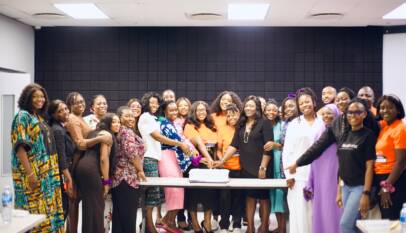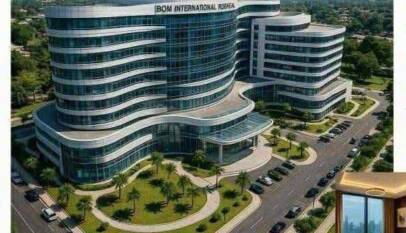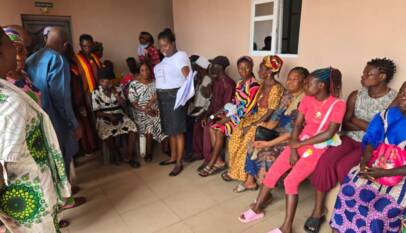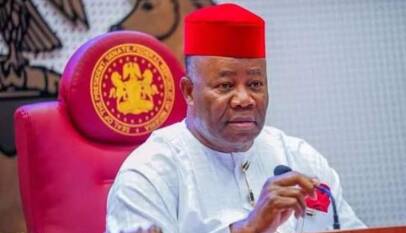Access, care, respect: Senator Aniekan Bassey’s medical outreach changes lives
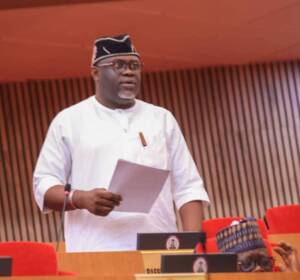
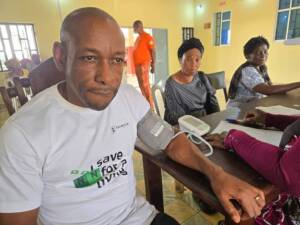
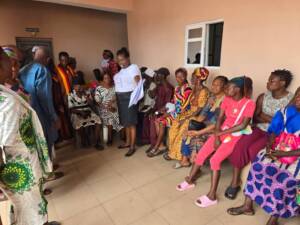
By Emmanuel Nicholas
Senator Aniekan Bassey has positioned dignity at the centre of his public service: a form of representation that treats every constituent as worthy of care, attention and practical support. His recent health outreach exemplifies that commitment in concrete, measurable ways.
Dignity in representation means responding to basic human needs: food, shelter, education and, crucially, health, so that citizens can live productive and respected lives. For Senator Bassey, healthcare has been a priority because good health underpins dignity.
In a major demonstration of this principle, Senator Aniekan Bassey organised free medical services across the three federal constituencies that make up the Uyo Senatorial District, bringing clinical services directly to underserved rural communities.
The three federal constituencies targeted by the programme were Itu/Ibiono; Uyo/Uruan/Nsit Atai/Ibesikpo Asutan; and Etinan/Nsit Ubium. The outreach deliberately covered the geographical spread of the senatorial district to ensure equitable access.
The scale of the exercise was considerable: over ten thousand people from rural local government areas benefited. The local government areas reached included Uruan, Uyo, Itu, Etinan, Nsit Atai, Ibesikpo Asutan, Ibiono and Nsit Ubium.
The services provided were comprehensive for an outreach: elective and minor surgical procedures, eye care (including vision tests and provision of corrective lenses), treatment for infectious diseases such as typhoid and malaria, screening for tuberculosis, and care for many common minor illnesses.
Surgical care in the outreach focused on conditions that can be safely and effectively addressed in an outreach setting or through rapid referral. Examples of surgical interventions offered included hernia repair, cataract extraction, appendectomy where indicated, excision of benign skin lumps and nodules, and minor orthopaedic procedures such as debridement and simple fracture manipulation.
These procedures were carried out by qualified surgical teams supported by anaesthetists, theatre nurses and recovery staff. Where procedures required more advanced facilities or prolonged aftercare, patients were identified promptly and referred to hospitals for follow-up.
Eye care formed a major pillar of the outreach. Ophthalmic teams conducted vision screening, diagnosed common eye conditions, performed basic procedures where appropriate, and dispensed corrective lenses on the spot for many patients.
A substantial number of patients who required corrective eyewear were fitted with individualised prescription lenses, restoring practical visual acuity and markedly improving their capacity to perform everyday tasks. Those presenting with more complex ocular pathology beyond the outreach’s diagnostic or therapeutic remit, such as advanced glaucoma or retinal disease, were referred to specialist ophthalmic centres for comprehensive evaluation and definitive management.
A range of other surgical conditions was also identified and treated operatively. These included hernias, wounds requiring surgical debridement, coronary artery disease necessitating coronary artery bypass grafting, symptomatic gallbladder disease managed with cholecystectomy, carotid artery stenosis treated by carotid endarterectomy, breast lesions requiring biopsy, and appendicitis managed with appendectomy.
Patients diagnosed with chronic conditions such as diabetes mellitus and hypertension were started on appropriate pharmacotherapy and provided with medication supplies intended to cover approximately six months, ensuring continuity of care until further follow-up.
The senator took an active role in supporting referred patients: serious cases identified during the outreach were referred to hospitals, and the senator undertook to bear associated hospital bills, ensuring financial barriers did not block access to necessary care.
A professional laboratory service accompanied all clinical work. Before treatment, patients underwent appropriate laboratory tests, such as malaria tests, full blood counts, urinalysis and rapid diagnostic tests for key infections, to ensure that diagnosis and treatment were safe and evidence-based.
These free medical outreaches were the third batch in the programme Senator Bassey has sustained since assuming office as the senator representing Uyo Senatorial District. This repetition reflects a commitment to continuity rather than a one-off charity.
Organising such a large-scale outreach required careful coordination: mobilising medical teams, securing supplies and portable equipment, partnering with local health facilities, arranging patient flow, and deploying volunteers for registration, triage and community liaison.
The human impact of Senator Aniekan Bassey’s medical outreach was immediate and visible. Rural residents who previously struggled to travel long distances for care accessed consultations, medicines and procedures locally, reducing the time, cost and risk associated with delayed treatment.
The medical campaign provides public health gains that extend beyond single treatments. The outreach enabled early detection of chronic conditions, initiation of treatment regimes, vaccination and prevention messaging, and referrals that can prevent deterioration and catastrophic healthcare spending.
The outreaches addressed a wide range of minor illnesses commonly encountered in primary care. Examples of minor conditions treated include malaria; typhoid fever; upper respiratory tract infections (common cold); cough and bronchitis; acute gastroenteritis/diarrhoea; skin infections such as impetigo and fungal infections; scabies; boils and abscesses; conjunctivitis (eye infection); otitis (ear infection); urinary tract infections; dental pain and cavity management; minor wounds and lacerations; insect bites and allergic rashes; hypertension screening and counselling; uncomplicated diabetes screening and referral; anaemia screening and supplementation; stomach/peptic symptoms and dyspepsia management; nutritional deficiency consultations; and minor musculoskeletal pains and strains.
Treatment for these minor conditions included short courses of appropriate antibiotics where indicated, antimalarials for confirmed cases, analgesics, topical and systemic antifungals, wound care, and counselling on hygiene and prevention. Where conditions required longer-term management, patients were enrolled in follow-up pathways.
Preventive and educational components accompanied curative care. Health talks on malaria prevention, hygiene, nutrition, maternal and child health, and the importance of early presentation were part of each outreach day to reinforce lasting behaviour change.
The mandatory laboratory tests before interventions were crucial: they reduced the risk of inappropriate treatment, identified comorbidities, and guided safe surgical and medical decisions. This professional standard underscores the dignity-focused approach — care delivered properly, not perfunctorily.
Senator Aniekan Bassey provided financial protection for referred patients: the senator’s commitment to meet hospital bills eliminated a common barrier to accessing tertiary care and demonstrated an understanding that dignified representation includes shielding vulnerable citizens from catastrophic health expenditure.
Senator Bassey’s motivation for prioritising health flows from an understanding that healthy citizens are empowered citizens. Investing in health improves education outcomes, economic productivity and social stability, and it affirms the worth of those who have historically been underserved.
Beyond immediate relief, the programme gestures toward longer-term health system strengthening: the outreach helped identify gaps in local primary care capacity, informed future resource allocation, and created linkages between community health workers and higher-level facilities.
The success of his medical outreach depended on partnerships with medical professionals, local leaders, volunteers and supporting institutions, and Senator Bassey publicly acknowledged these collaborators, emphasising that dignified representation is also about building collective capacity.
Lastly, Senator Aniekan Bassey’s free medical outreach, now in its third phase, illustrates dignity-driven representation in action: strategic, large-scale health interventions that reach rural communities, provide immediate relief and create pathways for sustained care, all grounded in respect for the people he serves.
Celebrations powers women entrepreneurs, boosts local economies with project advances
Chinedum Ukaegbu Celebrations, a brand rooted in helping people express their hearts throu…


